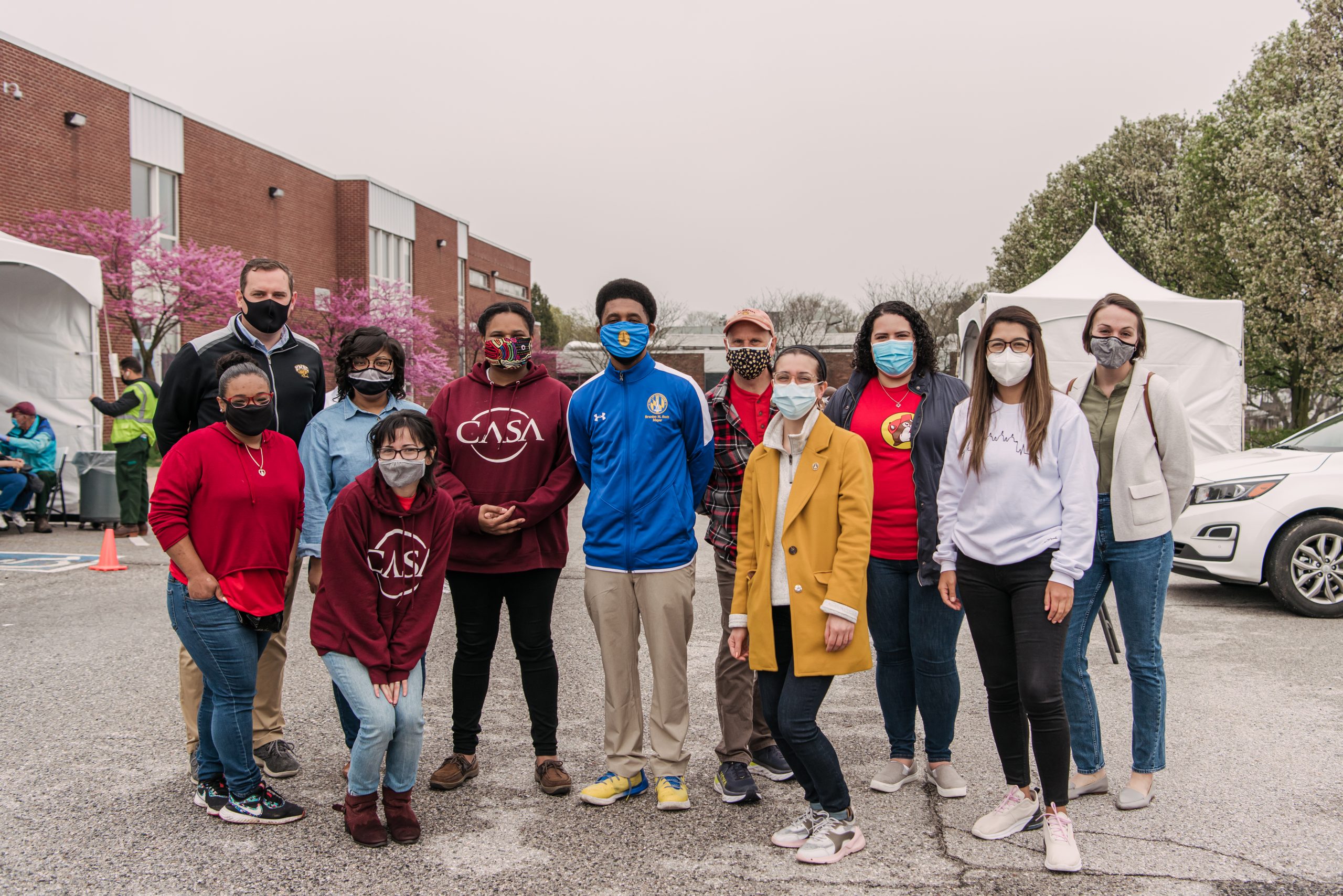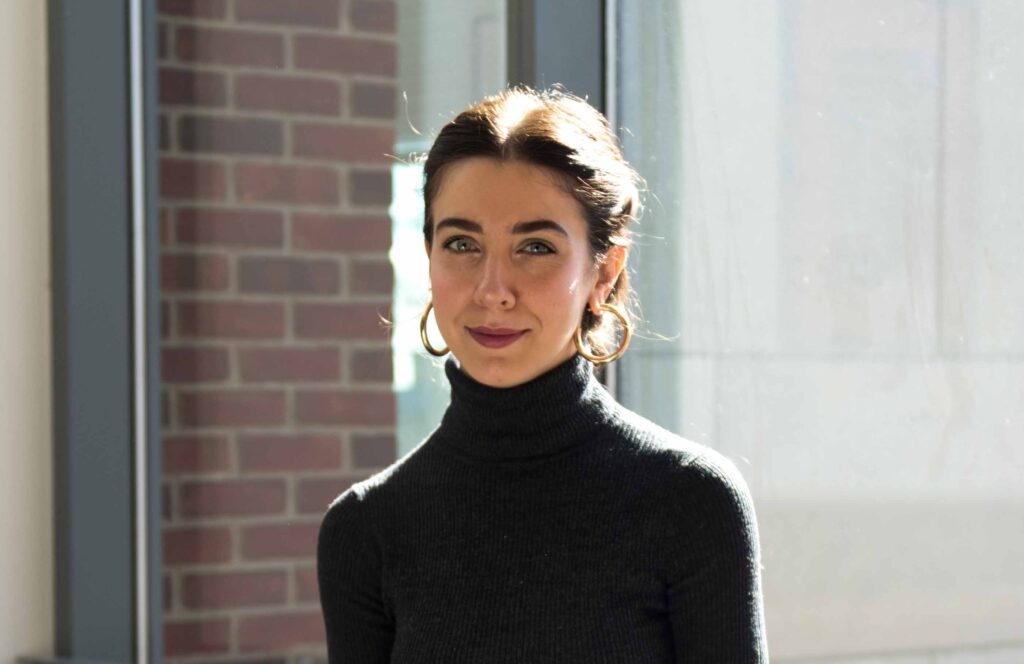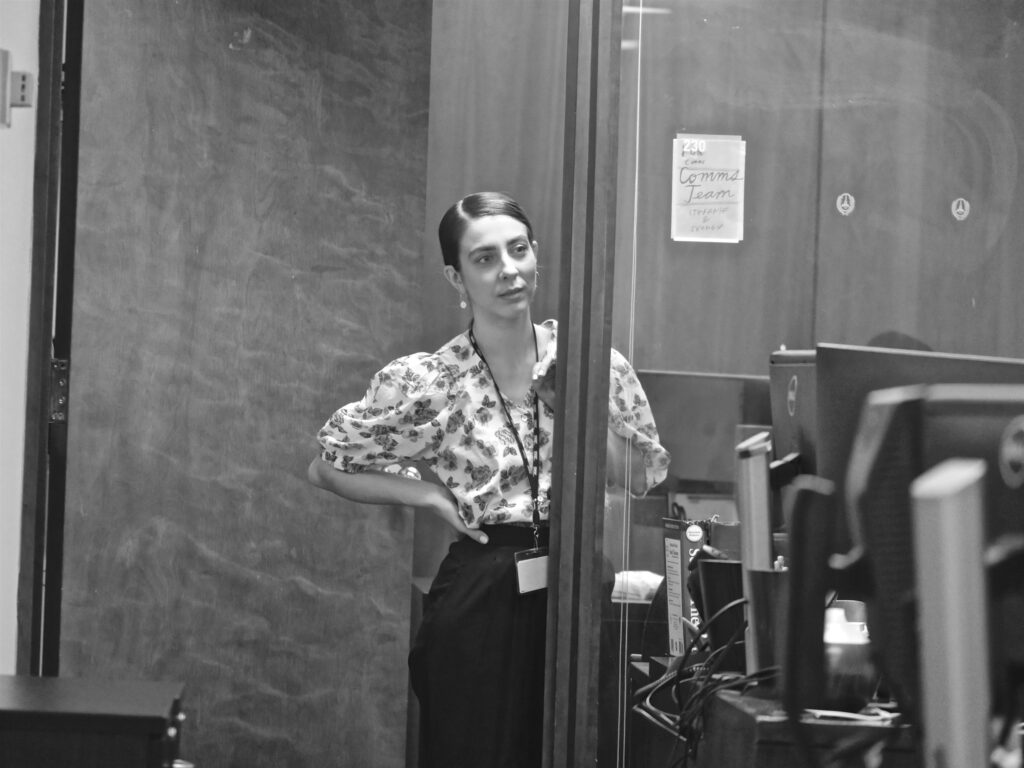As a first-generation college student from southeast Baltimore, Sondheim Scholar Stefanie Mavronis ’12, political science and media & communication studies, was initially hesitant to talk openly about her past. As she made a home—and a name for herself as an organizer—on campus, Mavronis realized that she could bring her whole self to UMBC. Now deputy director of communication for Baltimore City Mayor Brandon Scott, Mavronis channels her hometown pride and Retriever confidence to tackle connecting with constituents during a pandemic and what feels like an all-time low of public trust in government.
In 2000, all eyes were on the presidential election—mine included—except I was fixated on winning the highest office of fifth grade.
My teacher must have seen something in me, and she encouraged me to run for class president and generally explore things that I didn’t know were possible. It turns out that I naturally gravitate to these opportunities, whenever I’m in a new space or a new school or a new class—I end up organizing the people around me and working to make change.
Despite that, it wasn’t until my senior year at UMBC that I would explicitly share with people that I was from Dundalk. When people heard that about me first, there were stereotypes and assumptions about what I was capable of achieving and who I was.
Learning local history through my coursework at UMBC, reading books like Not in My Neighborhood, and having opportunities to explore and embed myself in the Baltimore community, where I was from became something that I wasn’t ashamed of. I wasn’t ashamed to be a first-generation college student—I was proud of it, and I started to see some of the unique leadership skills and insights that I brought as someone who came from that experience in Baltimore. UMBC was a safe and supportive space for my development as a young person and ultimately brought me to the position in the Mayor’s Office I have today.
Actively creating culture
At UMBC, I was always bursting at the seams with ideas and motivated to change the culture on campus. I have gratitude for my professors and mentors, who not only made time for me, but helped point me in new directions. In a big way, they were my support system. Delana Gregg, M.S. ’04, instructional development systems, Ph.D. ’19, language, literacy, and culture, who co-led the Sondheim Scholars program; Jodi Kelber-Kaye and Simon Stacey in the Honors College; Lisa Akchin in Institutional Advancement; Jason Loviglio in media and communication studies—I’m sure in his office alone, I probably spent tens of hours.
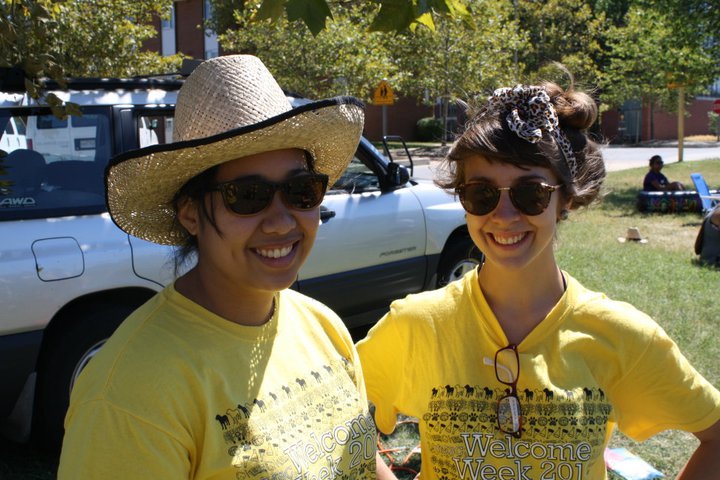
Mavronis served as vice president and design and marketing director for the Student Events Board (seb) while a student at UMBC. 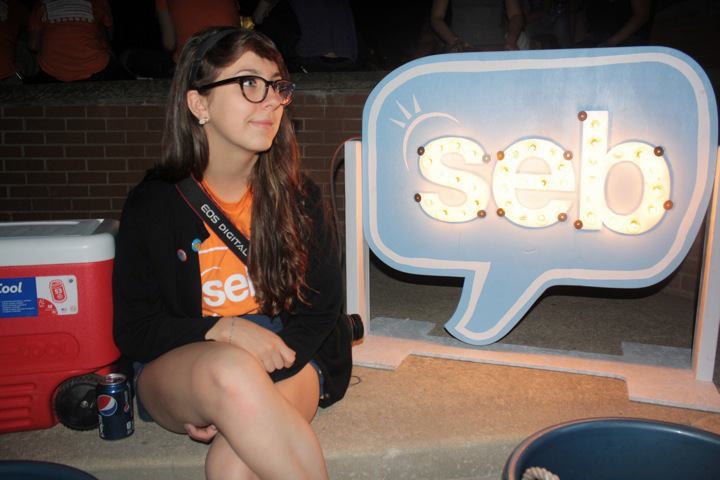
When I came to campus at UMBC, I fully intended to be part of the Student Government Association (SGA) but instead got involved with another student leadership organization in my first semester: the students events board (seb). When it came to the people on campus who I saw actively shaping and creating campus culture—taking the reputation that the school had at that time as a “commuter school”—I was really interested in being one of the students making campus culture more inclusive and just, and helping incoming students find their place.
As I got close to graduation, I realized one of the reasons why UMBC people stick together. We are collectively coming out of an institution that has gone to great lengths to not cushion us but help us find our individual paths, forge our unique lanes, and identify our strengths in a way that was very supportive.
The shift into the “real world” can be challenging. For me, it felt like I was being asked to fit myself into a box after being embraced for my whole, multifaceted self. I’m so grateful for my mentors and friends who sent me the message that they didn’t want me to change, who supported me in finding ways to communicate my strengths to the outside world.
Supporting a homegrown leader
In my last year of college, I applied for a mayoral fellowship which I ultimately did not get. Brandon Scott, a councilmember at the time, was part of my interview panel. I developed a proposal for how to address Baltimore’s vacant housing crisis over a summer, leveraging public-private partnerships in a different kind of community-based way. It was a wild plan, but Brandon recognized my passion, big ideas, and hometown pride.
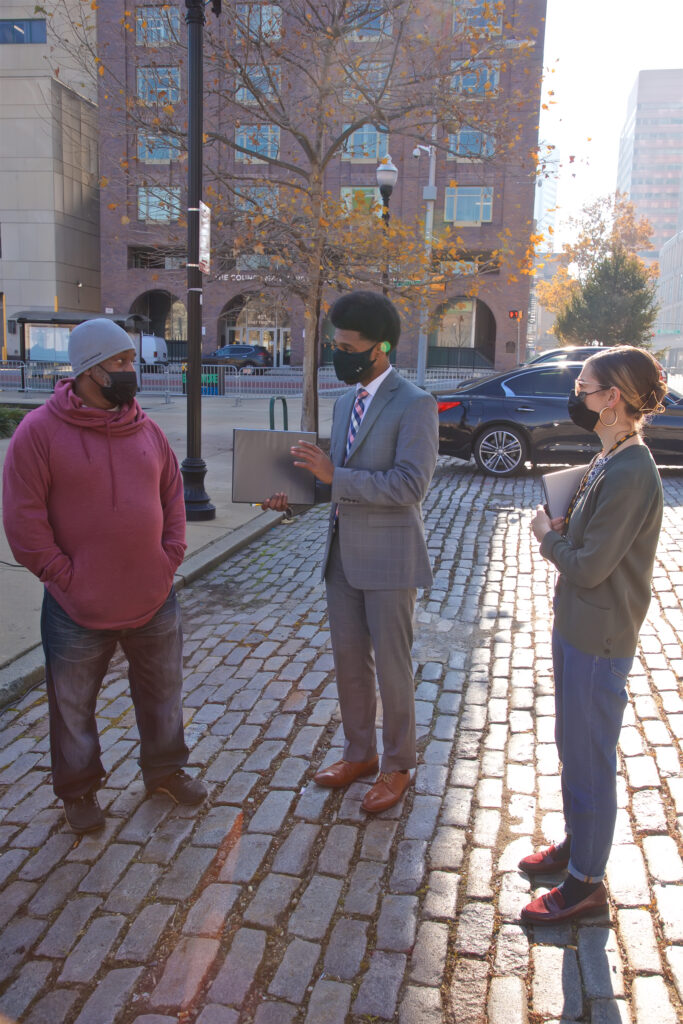
Brandon was a frequent guest on the Marc Steiner Show on WEAA 88.9-FM, where I worked as a producer for several years. Even back then Brandon often spoke about the need for local control of our police force and holistic strategies to combat gun violence. When I left to attend Princeton for graduate school, one of the ways I stayed connected to Baltimore was working with Brandon on the development of his strategy as the public safety chair of the City Council. After getting my master’s, I returned to Baltimore and landed a job at City Hall in Councilmember Zeke Cohen’s office.
After Brandon won his bid for council president in 2019, I was tapped to serve as his Communication Director. I was energized to work for a homegrown leader, someone who has a keen sense of what Baltimore needs and unconditional love for the people of the city in a way that I have not always seen or felt from leaders in the past.
Calling all visionaries
If you don’t like the way that things are, play an active role in changing them. There’s a lot of people who have made me feel like that’s possible throughout history and in my own life, from my successful bid for fifth grade class president to running a more competitive race in high school to represent southeast Baltimore County at a county-wide level in student government.
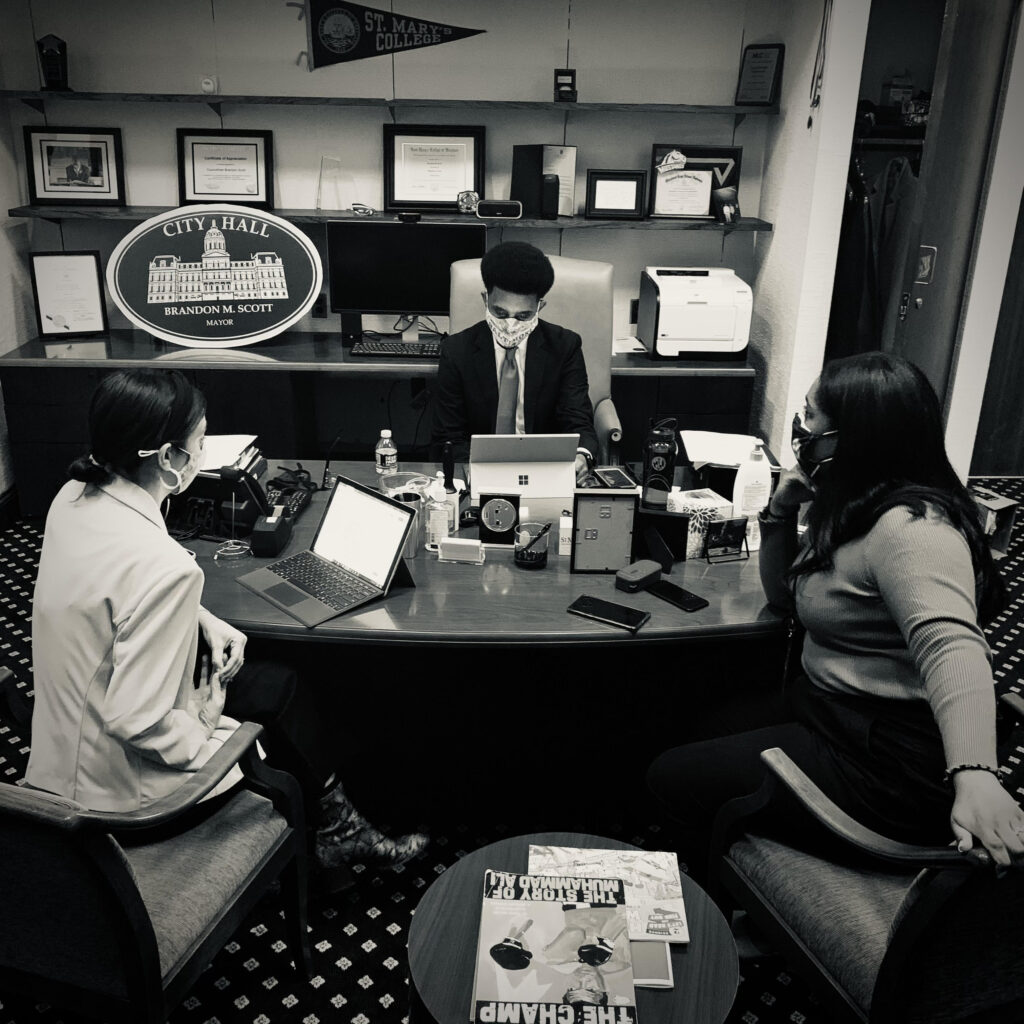
I never expected to work in local government, but am so glad I landed here. And now being here, I often wish there were even more people in this space with visionary ideas who aren’t deterred by boundaries, willing to try new things. Confronting the legacy of redlining and inequitable systems is not overnight work—but I now see how it takes people finding new ways to work together inside and outside of government to make transformative change and rebuild the trust that’s eroded over time.
I’m excited to be tasked with the opportunity and responsibility to be part of shaping this administration and bringing more people into this project of building a stronger Baltimore City, one that’s more equitable and accountable and that works better for people.
*****
Header image: Mavronis, in yellow coat, accompanies Mayor Brandon Scott to a UMBC co-sponsored vaccination pop-up event for the Lakeland community in southeast Baltimore. Photo by Marlayna Demond ’11.
Tags: Baltimore City, Media and Communication Studies, Political Science, seb, Sondheim Scholar, Spring 2021

